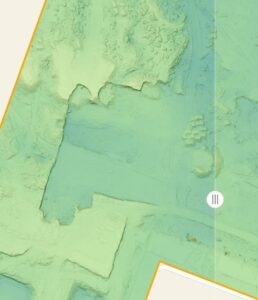News
Triaxial soil compression method
The triaxial compression method is one of the most important in modern soil research. Without detailed information about the properties of the soil and its nature, it is impossible to start designing construction work.
Triaxial compression is considered the most interesting and practical type of compression. It is this compression that the soil undergoes, being subjected to a load from the structure. Simply put, triaxial compression is a comprehensive action that is experienced by all units of soil volume.
The goal achieved by this test is to predict the behavior of a given type of soil under natural conditions. To conduct an experiment with triaxial compression, our specialists use a special device – a stabilometer. Working with this device allows you to accurately determine such mechanical properties of the soil as deformation and strength. Using this method of soil testing, a number of important indicators are obtained that are very important for designing a structure and determining the type of foundation (indicators of pore pressure, drainage conditions, the magnitude of the change in soil volume after its shift).
After receiving the results of the study, the designers can determine the nature of the territory on which it is planned to carry out construction, determine the possible dangerous processes in the soil. Based on this information, a decision is made on the possibility of implementing the project.
Core drilling
Core drilling is one of the types of rotary technology. In other words, core drilling can be defined as rotary drilling in hard rock. A characteristic feature of this technology is that penetration into the deep layers of the rock is carried out along the annular, and not along the entire area of the drilling rig. Removal of rock from the well to the surface is carried out using a specially designed flushing fluid, which is injected into the well using a mud pump.
Why do hydrogeological surveys?
To develop a project for future development, it is necessary to obtain accurate information about the site, including its hydrological information. In order to determine the location, thickness, depth and boundaries of aquifers, hydrogeological surveys are carried out. These tests also help to study the chemical composition of groundwater, make a forecast of their likely changes. In addition, tests can be carried out for the client’s personal needs, for example, when organizing water supply. The results obtained make it possible to study the composition and properties of groundwater, and to drill a well correctly
Earthquake through the eyes of a geologist
Because of the earthquakes in Turkey and Syria, an urgent question arose about “Can we have an earthquake?”. Three years ago, we recorded a video on the topic of earthquakes, where an experienced geologist explained in detail the nature of an earthquake and the possible consequences. Watch the earthquake danger video at https://youtu.be/8l6nYypmOZM
ПодробнееNews-2
Lorem ipsum dolor sit amet, consectetuer adipiscing elit, sed diam nonummy nibh euismod tincidunt ut laoreet dolore magna aliquam erat volutpat. Ut wisi enim ad minim veniam, quis nostrud exerci tation ullamcorper suscipit lobortis nisl ut aliquip ex ea commodo consequat. Duis autem vel eum iriure dolor in hendrerit in vulputate velit esse molestie consequat, vel illum dolore eu feugiat nulla facilisis at vero eros et
ПодробнееNews-1
Lorem ipsum dolor sit amet, consectetuer adipiscing elit, sed diam nonummy nibh euismod tincidunt ut laoreet dolore magna aliquam erat volutpat. Ut wisi enim ad minim veniam, quis nostrud exerci tation ullamcorper suscipit lobortis nisl ut aliquip ex ea commodo consequat. Duis autem vel eum iriure dolor in hendrerit in vulputate velit esse molestie consequat, vel illum dolore eu feugiat nulla facilisis at vero eros et
Подробнее


